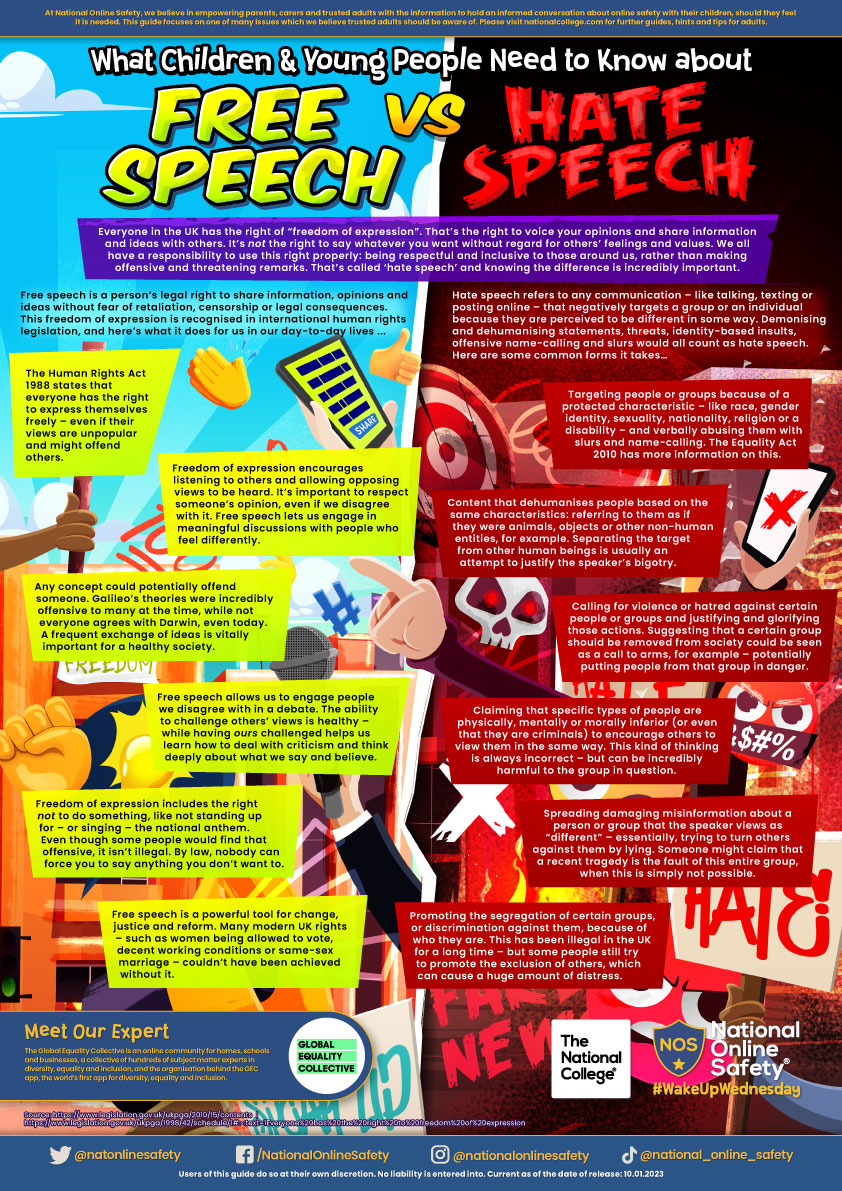Contentious or provocative viewpoints are shared every second of the day online. That’s not to say, however, that an opinion is less valid simply because it’s initially unpopular: just think about Galileo or Emmeline Pankhurst. The facility to have our beliefs questioned – and to challenge other people’s in return – is often a catalyst for scientific and social progress.
With disturbing frequency, though, some individuals post damaging hate speech online under the guise of ‘freedom of expression’ – and unless young people can identify hate speech, there’s a risk of them being influenced by such harmful content. Our #WakeUpWednesday guide explores the crucial differences between free speech and hate speech.


